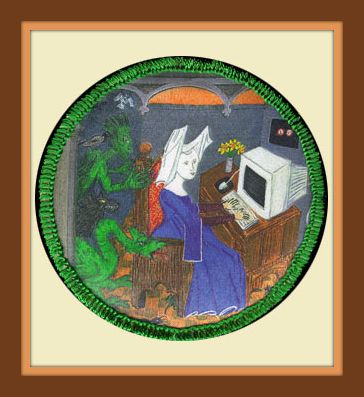All the famous heretics are here from Pocahontas, Anne Hutchinson and the witches of Salem lore to the abolitionists, suffragists, social reformers, labor organizers, civil rights activists and feminist leaders of the 19th and 20th centuries. There are particularly affecting portraits of the Grimke sisters, Sojourner Truth, Susan B. Anthony, Elizabeth Cady Stanton, Clara Barton, Jane Addams, Margaret Sanger, Mother Jones and many more. They mingle with Annie Oakley sharpshooting her way to freedom in wild West shows, the Gibson Girl setting loose on her bicycle, the flapper in her Model T and the legendary romantic heroines of American stage and screen who reshaped women's aspirations here and around the world through their embrace of modern culture, not politics.  By Gail Collins. AJ got me this one for Christmas or my birthday last year. I held off on reading it because I thought it would nicely complement Well Behaved Women Seldom Make History. And it did. Collins' book starts with the first European settlers here, including women. And then she works methodically through time, finishing up with the 60's and 70's. To sum up her subjects, a NYT book reviewer says:
By Gail Collins. AJ got me this one for Christmas or my birthday last year. I held off on reading it because I thought it would nicely complement Well Behaved Women Seldom Make History. And it did. Collins' book starts with the first European settlers here, including women. And then she works methodically through time, finishing up with the 60's and 70's. To sum up her subjects, a NYT book reviewer says:
Collins does a great job of covering the experiences of lots of different kinds of women: immigrants, poor, and black women in addition to middle class whites. She shows the diversity of women's experiences. But, because she covers so much history and so many different women, it is hard for me to keep details of very many women in my mind.
A key theme throughout her book is the "The center of our story is the tension between the yearning to create a home and the urge to get out of it." She shows that this has been a centuries long struggle for American women, "a struggle to straighten out the perpetually mixed message about women's roles."
Similar to Ulrich's book, she mentions that women who make history are those that have left behind a great deal of information. "New England spinsters get way more that their share of attention because of their winning habit of keeping diaries. Native American women who had no written language left behind almost nothing of their voices."
Saturday, May 10, 2008
America's Women: 400 Years of Doll, Drudges, Helpmeets, and Heroines
Labels:
Off the Stacks
Subscribe to:
Post Comments (Atom)

1 comment:
"The center of our story is the tension between the yearning to create a home and the urge to get out of it."
Well put.
The theme of her book? That's the theme of my life!
Post a Comment